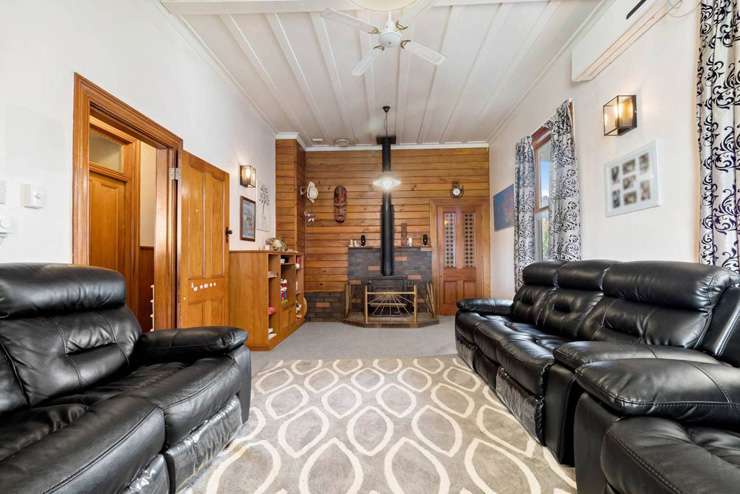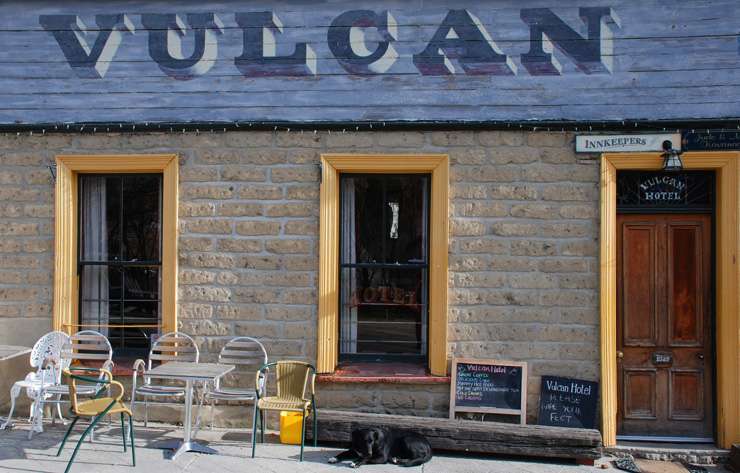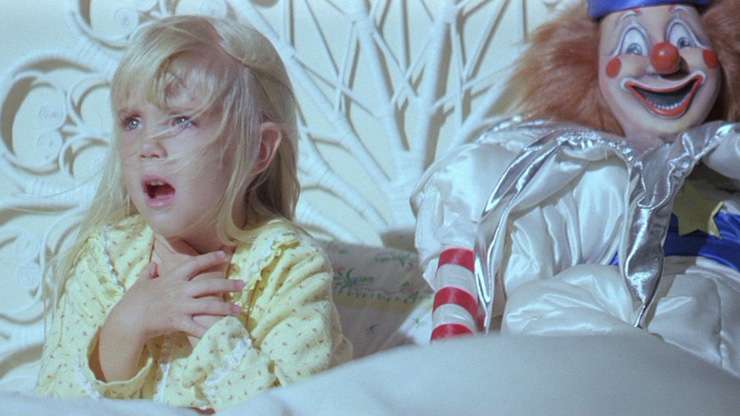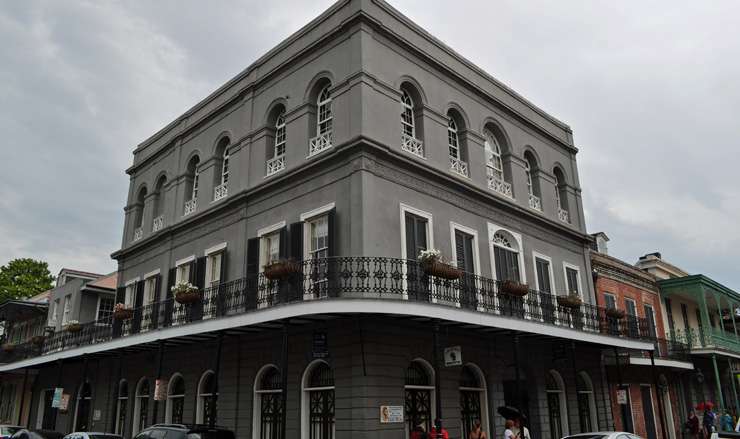Halloween is about bringing spooks, ghouls and ghosts to the streets of New Zealand.
But what should you do if spooky things have taken up residence in your new home, as some unfortunate renters discovered in South Auckland last week?
READ MORE: Find out if your suburb is rising or falling
The New Zealand Herald reported that ghost-busters were brought in to rid a villa in Pukekohe of evil spirits after tenants complained they were being haunted three female spirits.
Start your property search
The previous owners say that they too had been disturbed by an other-worldly presence some 24 years ago but told the Herald that the house had been paranormal-free for two decades before they sold up in February this year.
Bindi Norwell, CEO of the Real Estate Institute New Zealand, says that sellers and agents are not required to reveal such unusual goings-on up front.
“Under the Real Estate Agents Act, there is no requirement to advertise sensitive information or tell everyone who views the property that, for example, a murder has occurred on the property. However, agents must tell buyers who have indicated an interest in submitting an offer on the property.”

This tenants of this villa in Pukekohe, Auckland, were terrified by a strange spirit, Photo / Supplied
That generally doesn’t mean a natural death needs to be disclosed, but agents will tell interested purchasers about the history of the property before they put in an offer.
“The disclosure of sensitive issues is relevant to the particular circumstances of the event - how long ago the event occurred, whether the event has a degree of notoriety, the likely reaction of purchasers and the potential impact on price.”
Belinda Moffat, chief executive of the Real Estate Authority, said New Zealand did not have a haunted house rule "but, under the real estate professional client care and conduct rules, agents cannot withhold information about a property that should in fairness be shared with potential buyers. This could include information about a sensitive issue, like an unnatural death or a violent crime that happened at the property.”
She added that agents should not disclose sensitive information without a vendor’s consent, "so it’s really important that the agent and the seller discuss any sensitive issues surrounding the property".
Ray White Ponsonby real estate agent Trish Lafferty told OneRoof while compliance was more of an issue, she has dealt with some haunted listings: “I’ve definitely sold houses with ghosts.”

The infamous Vulcan Hotel in St Bathans. Photo / Supplied
“We were doing a photo-shoot [for one house] at twilight and I went out the back, and turned on the lights. They were then turned off. I know for a fact I felt it. I remember that. But is it something you just feel or is it real? Some people feel it, some people don’t - you’ve got to believe in it.”
Alexander Harcourts agent Rhys Chamberlain, whose Central Otago territory includes St Bathans, where the haunted Vulcan Hotel is located, won’t be drawn on whether other houses in the historic former gold town might host their own poltergeists.
“Not that I know of. I guess I would have to disclose if they were. But Room 1 [of the Vulcan] is pretty well known to be haunted, so you wouldn’t have to tell anyone,” he said.
Dunedin ghoul guide (and hairdresser) Andrew Smith, author of the tell-all book Dunedin Is A Ghost Town, said that while the city had some pretty well-known haunted sites - Larnarch Castle, the city’s Victorian-era prison and Seacliff Lunatic Asylum - there are also “a swag” of private houses with their own poltergeists.
“There’d be a good dozen, probably a lot more. But people don’t want to talk about their house being haunted, that’s when it gets touchy. It’s bad taste for me to turn up at a private residence at 8 o’clock at night with a group of people.”

The 1982 film Poltergeist scared a generation of house-buyers. Photo / Supplied
Smith, who says he started the business because he loved the stories of the forgotten, dark side of Dunedin, says all the gold-mining settlements of Otago and Westland have their own ghost stories.
Smith says there was a student flat – its nickname sign "The Haunted House” may have given it away – where tenants were having “problems” with items being arranged by naughty phantoms. However, when they asked the tenancy tribunal to release them from their lease, they were required to produce photographic proof.
Owner of real estate and property management agency Nidd Realty, Joe Nidd, is not sure that story is any more than Dunedin folk-lore. “There are students who will have a bit of a laugh with it,” he said.
“But I’ve never heard the question about disclosure [of ghosts]. Without evidence then it actually interferes with the vendors’ rights to a fair sale. Without substantiated evidence – and that’s hard to come by – you actually run the risk of doing harm.
“There’s a threshold, that only a certain number of people believe in this.”
That said, Nidd adds, there is no question that an agent would disclose sensitive issues that do matter, but is sceptical that rumoured ghosts would pass that test.

The spooky New Orleans house that actor Nicolas Cage bought and later abandoned. Photo / Getty Images
Tenancy lawyer Scotney Williams – after first establishing OneRoof was not pulling his leg – said that he never heard of hauntings making it to the tenancy tribunal. “Adjudicators are lawyers, and lawyers are not known for letting our minds bend like that.”
A submission from a tribunal might need evidence from more than one party (the previous owners, for example) but “even then, I wouldn’t want to be the adjudicator who publishes a written opinion on a haunted house.
It may seem fanciful, but some countries or states do require agents to disclose paranormal activities to buyers. Last year, US property site Zillow found four states that refer to ghosts in their real estate laws: New York, New Jersey, Massachusetts and Minnesota.
In New York, vendors don't need to reveal if a house was the site of murder or suicide but the courts will get involved and cancel a house sale "if the seller creates and perpetuates a reputation that the house is haunted and then takes unfair advantage of a buyer's ignorance of the home's ghostly reputation".
And in New Jersey, vendors have to tell buyers if their house is haunted if asked.
Ghosts can have an impact on house prices, too. In 2009, The Economist reported the findings of a real estate study by Utpal Bhattacharya and Kasper Meisner Nielsen of the Hong Kong University of Science and Technology, and Daisy Huang of Nanjing Audit University. They found that haunted houses in Hong Kong lost on average about a fifth of their value.
Some buyers are prepared to abandon their purchases because of ghostly goings-on. In 2007, actor Nicolas Cage paid US$3.5 million for a haunted mansion in New Orleans. "At any given moment I have five or six ghosts surrounding the house, all looking up at this haunted temple, and I'm in there. We'll come over and have dinner there but nobody sleeps there," Cage said.











































































